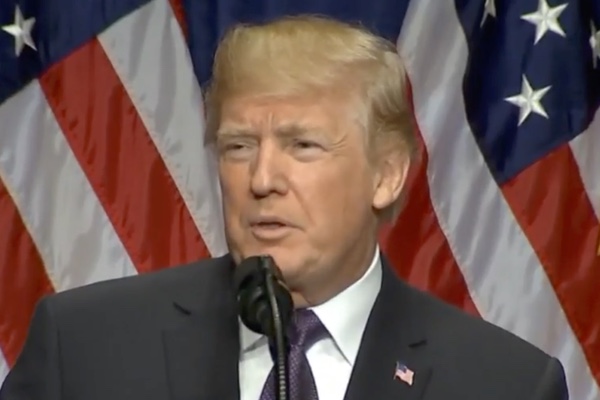An Account of Presidents Demonstrating Moral Courage on Major Issues Includes These 14 Leaders

The most significant factor in rating any President’s greatness is when they demonstrate moral courage on major issues that affect the long term future.
A President will be remembered and admired if, during his time in office, his better nature and desire to improve the lives and security of Americans prevails over selfish or biased personal inclinations. Presidents who overcome their personal shortcomings or prejudices always look better in the long run of history.
So we have George Washington, who turned down the chance to accept a crown and to remain in office for his lifetime, knowing that was the wrong way to begin an experiment in a republic.
So we have Thomas Jefferson, who overcame his own ideological belief in small government to recognize the value in Alexander Hamilton’s National Bank and protective tariff, which helped stabilize the economy and create growth.

So we have Abraham Lincoln, who saw the need to promote the end of slavery, an evil institution, through the Emancipation Proclamation, and helped to steer the 13th Amendment to the Constitution through Congress in 1865.
So we have Theodore Roosevelt, who read Upton Sinclair’s novel, The Jungle, and made a commitment to the passage of the Pure Food and Drug Act and the Meat Inspection Act in 1906.
So we have Franklin D. Roosevelt abandoning his 1932 campaign criticism of Herbert Hoover for deficit spending to promote the programs of the New Deal. FDR also understood the need to provide Great Britain with necessary economic and defense support as World War II raged on in Europe, while seeking a third term, and throughout 1941, no matter what the opposition in Congress.
So we have Harry Truman bravely integrating the US military and Washington, DC by executive order in 1948 over the strong opposition of many powerful groups – and this during a Presidential campaign that seemed likely to bring about his defeat.
So we have Dwight D. Eisenhower, overcoming strong opposition from the South, sending the National Guard into Little Rock, Arkansas in 1957, to enforce federal court orders of integration. Also, Ike warned us about the dangers of the “military-industrial complex” in his path breaking Farewell Address in 1961, a speech that was more significant due to his own military background.
So we have John F. Kennedy courageously sending in the National Guard to the University of Mississippi in 1962 and the University of Alabama in 1963, and calling for a Civil Rights Act that he knew might lead to his defeat for a second term in 1964.
So we have Lyndon B. Johnson overcoming his own Southern heritage of racial discrimination and making civil rights and voting rights for African Americans his major cause, along with promoting the War on Poverty, based on his own experiences as a teacher of Latino students in south Texas.
So we have Richard Nixon, overcoming his anti-Communist background and facing opposition from the right wing conservatives, to open a relationship with the People’s Republic of China in 1972 as well as promote détente with the Soviet Union the same year.
So we have Jimmy Carter negotiating the Panama Canal Treaty in 1978 to overcome a century of Yankee imperialism in Latin America. He also brokered the Camp David Accords, which led to the establishment of diplomatic relations between Egypt and Israel, an achievement that still survives 40 years later.
So we have Ronald Reagan, who after strong anti-Communist rhetoric, moved to end the Cold War by negotiating with Soviet leader Mikhail Gorbachev in the late 1980s.
So we have George H. W. Bush, who took up the cause of the disabled, and advocated federal legislation to promote and protect them, giving them a chance to lead more fulfilled lives.
So we have Barack Obama, who made the promotion of gay rights a major commitment after a period of earlier hesitation. He also displayed courage in opening up relations with Cuba, after a half-century of total hostility toward that neighboring island nation in the Caribbean.
All of these Presidents’ historical images are better because of the stands they took, a positive advancement of the nation’s interests.
While none of these Presidents were perfect in their behavior and motivations at all times, being human, they did not set out to promote racial division, or undermine immigrant groups, or publicly insult various groups and individuals as their motivation.
None of these Presidents in the past century set out to alienate America's allies and create uncertainty as to our leadership of the free world.
None of these Presidents openly advocated policies that would cut back progress, and brazenly advance the interests of the wealthy over the general population.
To be sure many of the Presidents may have had the human traits of being mean, evil or selfish at times (particularly Richard Nixon). But Donald Trump, the 45th President, has shown little of their idealism. He displays no interest in earlier Presidents and their actions, and has no ability within his own narcissistic, self-serving personality, to be anything like these Presidents. Ten of these 14 Presidents are in the top ten of the C Span Survey of Presidential Scholars in 2017. Barack Obama ended up 12th in that survey, while Carter and the senior Bush, while not rated as highly, and despite their failure to win reelection, have seen their reputations grow, as they have set records for Presidential longevity. And Richard Nixon, while the most controversial and complex of Presidents, still managed to accomplish some outstanding deeds in both domestic and foreign affairs, which have raised his stock somewhat in historical evaluations.
Donald Trump will never reach the heights of these 14 Presidents, and that reality is a setback for the American people. But in the future, Presidential courage and greatness will again arise for certain.